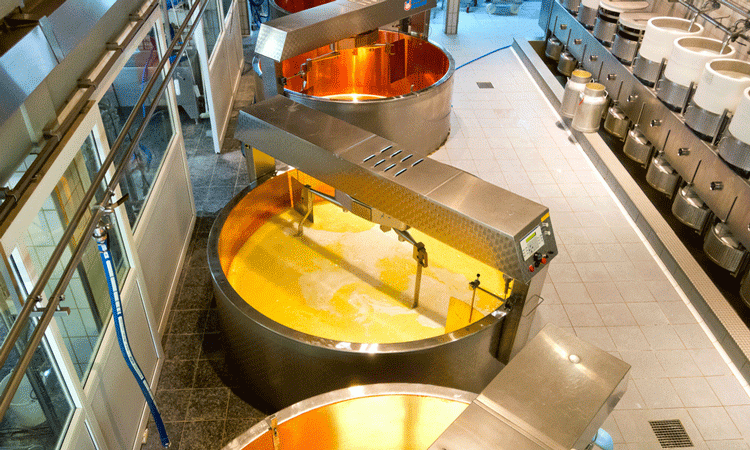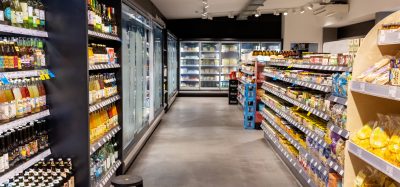Oil coating prevents bacterial growth on processing equipment
- Like
- Digg
- Del
- Tumblr
- VKontakte
- Buffer
- Love This
- Odnoklassniki
- Meneame
- Blogger
- Amazon
- Yahoo Mail
- Gmail
- AOL
- Newsvine
- HackerNews
- Evernote
- MySpace
- Mail.ru
- Viadeo
- Line
- Comments
- Yummly
- SMS
- Viber
- Telegram
- Subscribe
- Skype
- Facebook Messenger
- Kakao
- LiveJournal
- Yammer
- Edgar
- Fintel
- Mix
- Instapaper
- Copy Link
Posted: 30 July 2018 | Iqra Farooq (New Food) | No comments yet
Researchers at the University of Toronto found that the cooking oil coating resulted in a 1000x reduction in bacterial levels inside the industrial machines tested.


Huge industrial scale stainless steel machines are regularly used in the food industry to mix together raw materials in large quantities. They are difficult to clean and with time the equipment becomes scratched on its surfaces. These minute grooves become like a canyon for bacteria to reside and multiply.
Surface bacteria increase the risk of contamination from microorganisms such as Salmonella, Listeria and E.coli.
Researchers at the University of Toronto studied safer, cheaper and more effective ways of preventing bacterial growth within these surfaces, which minimises the risk of cross contamination, in turn leading to foodborne disease.
Professor Ben Hatton of the University of Toronto’s Department of Materials Science & Engineering and his team propose a simple solution: trap a thin layer of cooking oil at the metal surface of fill in microscopic scrapes, fissures and cracks to create a barrier to bacterial attachment.
The team found this solution resulted in a 1000x reduction in bacterial levels inside the industrial machines tested.
“Coating a stainless steel surface with an everyday cooking oil has proven remarkably effective in repelling bacteria,” said Prof Hatton who collaborated on the project with AGRI-NEO, an Ontario seed processing company looking for a solution to a common problem in its industry. “The oil fills in the cracks, creates a hydrophobic layer and acts as a barrier to contaminants on the surface.”
The simple method builds on the Harvard-developed ‘Slippery Liquid-Infused Porous Surfaces’ (SLIPS) principle, which was developed to trap lubricant layers into a surface microstructure and create slippery, non-adhesive and non-wetting properties. Cooking oils provide a safe, cheap alternative to the abrasive chemicals ordinarily used for cleaning. Leftover bacteria can also build up resistance to cleaning products, and this new method fills the scratches with oil, and essentially creates a barrier and cleans the surface without leaving chemical residues on the stainless steel surface.
“Contamination in food preparation equipment can impact individual health, cause costly product recalls and can still result after chemical-based cleaning occurs,” said Prof Hatton. “The research showed that using a surface treatment and a cooking oil barrier provides greater coverage and results in 1,000 less bacteria roaming around.”
The research group continues to test new combinations of oils, foods and biofilm types to increase the efficiency of the bacteria barriers. They also look to explore options of using this method in developing countries to minimise bacterial infection and improve mortality rates.
The results have been published in the journal ACS Applied Materials & Interfaces.
Related topics
Related organisations
University of Toronto Department of Materials Science & Engineering







